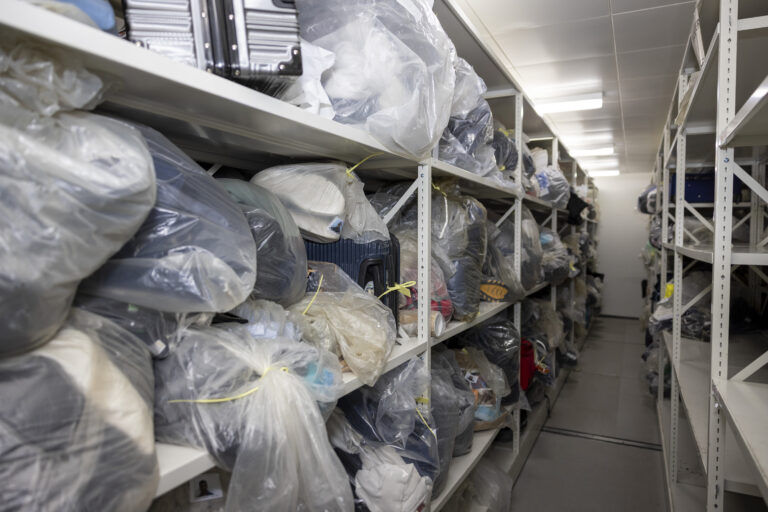Chaos in the crisis – the damaging loss of prisoners’ personal property

Photo by Andy Aitchison
The handling of prisoners’ property, while easily trivialised by many, goes beyond just managing a person’s belongings; for those who have been deprived of their liberty and have little connection to the outside world, personal possessions can mean everything. For the Prison Service, treating prisoners’ property with the care and respect it deserves, reflects a commitment to fair and humane treatment.
For many years, Independent Monitoring Boards (IMBs) have consistently highlighted the widespread loss and damage to prisoners’ property in adult prisons and young offender institutions (YOIs). Reports have emphasised the negative impact this has had on the life of detained people—affecting their safety, mental and physical health, and prospects for progression and release. Despite consistent calls to ministers and the Prison Service for action to address this issue, and recommendations for improvement, and although IMBs have identified some effective local initiatives, there is little evidence of any real progress having been made.
As the public debate on prisons continues, the IMB has today (25 September 2024) released a report that draws together failures by the Prison Service in managing prisoner property and examines the impact this has had on detained individuals, further contributing to the broader discussion of a system in crisis.
A number of problem areas have been identified, including:
- The use of antiquated and unreliable systems, such as paper property cards and paperwork, which meant there was no effective audit trail or quick way to track property.
- The impact current population and capacity pressures, and the resultant increase in prisoner movement across the estate and late arrivals, have had on prisoners’ already poor experiences with the care and management of their property.
- Staff shortages, which have led to delays in processing and distributing property, increasing the risk of it going missing. Inexperienced staff did not always follow property processes correctly, and some staff had unhelpful and dismissive attitudes towards property loss, seeing it as inconsequential.
IMBs uncovered multiple cases where the loss of, or damage to certain property has had a severely negative impact on prisoners, such as:
- Disability aids, which are essential for day to day living. One man’s prosthetic leg was lost during transfer, still not recovered over a year later. The IMB have raised repeated concerns locally with the Governor.
- Legal paperwork, which is integral to ongoing court cases, sentence appeals and parole applications. A significant number of one man’s boxes of legal paperwork for an ongoing complex court case, which were the sole copies, were lost during his transfer between three different prisons. This meant he did not have access to his papers for his court hearing and was prevented from being able to adequately prepare.
- Personal items, which are often essential to maintaining family ties. One man’s property was taken and stored in biohazard bags on arrival due to the sending prison’s issues with bed bugs. Six weeks later, he was told that it had been lost.
During this time his wife died, but he was unable to contact his child, who lived abroad, as their contact details were in his now-lost property. The issue was not resolved for weeks.
IMB National Chair, Elisabeth Davies said:
“I have been shocked at the national scale of loss and damage to prisoners’ property shown by local IMBs monitoring in adult prisons and YOIs. Although the Prison Service implemented a new policy framework in 2022 with the aim of addressing the main problems continually identified by local IMBs and improving prisoner outcomes, two years later there is little to no evidence that this framework has made any difference.
As National Chair, I hope this is the last time IMBs will have to set out these ongoing issues. I urge the new government to undertake a comprehensive reform of property processes and systems, investing in essential immediate and long-term solutions, such as a national digital tracking system. The implementation of a digitised system would be an investment in staff time and prison safety, and improve prisoners’ mental health and well-being, as well as their perceptions of staff, fair treatment, and the system overall.”
